Cafecito
Por Piedad Teatro
Cafecito (Coffee and chat) are interviews with comadres and compadres meant to shine a light on what small or large companies, independent artists or ensembles are doing around the country. Café Onda is an evolving publication. Sit back, take a sip, and enjoy this Cafecito.
Founded in Mexico City in 1999, Por Piedad Teatro produces “significant and profound pieces out of unexpected tales and dangerous texts” and has recently become a beacon of international collaboration in New York City (via their sibling branch Por Piedad Teatro Foundation). The company supports theatremakers, both emerging and successfully established, by aiding artists in development workshops, readings, and productions.
Georgina Escobar: What can you tell me about the beginnings of Por Piedad Teatro? How did it come to be, at which point did you join, Antonio, and how did this all come to be Por Piedad Teatro Foundation?
Ana: Por Piedad Teatro was created with the idea of bringing contemporary, international texts that were newsworthy, important, and urgent to Mexican audiences; we were also interested in contributing to the idea of Mexico being in constant dialogue with the international theatre community. I started producing because I felt that having started my studies late, the actresses of my generation had an advantage over me; I felt I should generate my own projects.
Antonio: I joined Por Piedad in 2003 when I auditioned to be part of the cast of Some Explicit Polaroids by Mark Ravenhill and have been collaborating with the company since then, first only as an actor, then later as a translator. Once we moved to New York (when Por Piedad Foundation emerged), I took an artistic director role. With Por Piedad Foundation we strive to expand the company’s vision and mission and focus more on binational collaborations and creating opportunities for Mexican theatremakers to show their work internationally; to learn from New York production models and above all, to share our theatremaking, our unique dialogue, and discourse.
Georgina: Your collaborations are mainly with PlayCo, is that right? Who are other US artists and companies with whom you have collaborated and on what projects?
Ana: The Play Company was a fortunate encounter; it was the first producing company that we approached; they believed in our project and now we are in the midst of our second collaboration with them.
Antonio: Ana has also collaborated with the Lark Play Development Center, which features translations into English of international plays. On an individual level, we have invited US artists to work with us, in our plays as well as in our initiatives such as Hecho en México (Made in México), which is a staged reading series of Mexican texts that we did in collaboration with PlayCo.
Georgina: Ana, you consider yourself a costume designer, as well as many other things—can you tell me a little bit more about your multi-faceted talents?
Ana: I started in 2004 as costume designer for El Campo (The Country) by Martin Crimp. Since then, I have been the designer on all my productions. My roots in theatre are as an actress/producer, but my interest for costume surfaced because of all the elements that make for full production, it is the only one which allows for constant contact with the actor. I am interested in the dramaturgy of costuming; wardrobe should follow a certain kind of logic—it can’t be capricious, it should help to tell the story, and it should be a cohesive aspect of character development and the production as a whole. Since Por Piedad is a relatively small company, it is practical for all members to develop more than one creative role within each production.
Por Piedad Teatro was created with the idea of bringing contemporary, international texts that were newsworthy, important, and urgent to Mexican audiences; we were also interested in contributing to the idea of Mexico being in constant dialogue with the international theatre community.
Georgina: Tell me about your relationship to Mexican playwright Paulina Barros—are you collaborating or working towards a residency? How does it function?
Ana: Paulina is a talented emerging playwright with whom we have interest of collaborating in the future; we have advised and co-produced emerging theatre companies in Mexico, we have brought Mexican artists to New York, and each year we engage with Mexican actors and creatives, but even though formally structuring a residency program is something we are striving to achieve, it is not something that we are prepared to officially offer as of now.
Georgina: Your upcoming piece The Duchamp Syndrome is about a NY janitor with dreams of becoming a stand-up comedian—can you tell me about it? What inspired it and how you work collaboratively with your team on developing it?
Antonio: I can’t speak of a single point of departure in the creation of this piece; The Duchamp Syndrome is a conglomeration of things that are of interest to me, that I am passionate about or obsessed with. On one hand it comes from the idea of creating a rather innocent piece that I could share with my mother, because I always make her suffer when she comes to see me at the theatre. Even though she is a sensible and understanding woman who gets what I do, she has a hard time being constantly exposed to “high risk” theatre. I decided it was time to try my hand at being a playwright (I have other written plays, but Duchamp is the first to be staged) with something simple and beautiful. Unfortunately a bad-mouthed, bawdy, and vulgar cockroach made its way into the characters and didn’t want to leave. It happens. The play also pays homage to New York and Mexico. Once upon a time, some years ago, I worked as a janitor in London, and from that experience came the idea to write about that particular world. Upon arriving in New York, I discovered the fascinating world of stand up comedy, of Redd Foxx, of Richard Pryor, George Carlin, etc. I discovered the expressive possibilities of miniatures, toys, and other animated objects. I fell in love with certain types of marionettes and I wanted to put all of that together into a play. The challenge was to make the piece come together as a whole instead of a series of events or happenings. We produced The Duchamp Syndrome as a work in progress funded by Indiegogo, with Ana as producer/costumer and me as director. For the full production, we realized we needed an outsider’s vantage point, so we decided to make Ana a co-director, first in Mexico, then here.
***
Cafecito: Por Piedad Teatro
por Georgina Escobar entrevistando a Ana Graham & Antonio Vega
Cafecito son entrevistas entre comadres y compadres con el propósito de darle un vistazo a lo que hacen o están por hacer compañías de teatro, artistas independientes, o grupos de artistas en el país. Café Onda es una publicación que sigue creciendo y cambiando, así que, por ahora, disfruta de este Cafecito.
Establecida en la Ciudad de México en 1999, la compañía teatral Por Piedad Teatro se dedica a la producción y difusión de teatro cultural. La compañía aporta a la creación de teatro de alto riesgo y tiene rama de producción en Nueva York por medio de Por Piedad Teatro Foundation.
Georgina: Ana, Antonio, que me pueden decir de los principios de Por Piedad Teatro? Como se dio a cabo, en que momento te uniste, Antonio, y como fue esto a dar con Por Piedad Teatro Foundation?
Ana: Por Piedad Teatro se creo con la idea dar a conocer al público mexicano textos contemporáneos internacionales que fueran novedosos, importantes, urgentes; también nos interesaba contribuir a que México pudiera dialogar con la comunidad teatral internacional. Empecé a producir porque sentí que al haber empezado a estudiar tarde, las actrices de la generación a la que pertenezco me llevaban ventaja, y si quería estar en el escenario con la contundencia que me era necesaria, debía generar mis propios proyectos.
Antonio: Yo me uní a Por Piedad en el 2003 cuando me audicionaron para formar parte del elenco de Fotografías Explícitas (Some Explicit Polaroids) de Mark Ravenhill y a partir de entonces he seguido colaborando, primero únicamente como actor y posteriormente como traductor; y fue una vez que nos mudamos a Nueva York cuando surgió Por Piedad Foundation y asumí la dirección artística. Con Por Piedad Foundation tratamos de ampliar la visión de la compañía y nos enfocamos más en las colaboraciones binacionales, crear oportunidades para que hacedores de teatro mexicanos den a conocer su trabajo en el extranjero; aprender de los modelos de producción Neoyorquinos y sobre todo, dar a conocer nuestra forma de hacer teatro; nuestra poética y discurso.
Georgina: Su colaboración es principalmente con PlayCo no es así? Con que otros artistas/compañías teatrales Estadounidenses han colaborado y en que proyectos?
Ana: The Play Company fue un encuentro muy afortunado; fue la primera compañía productora a la que nos acercamos; creyeron en nuestro proyecto y ahora estamos en medio de nuestra segunda colaboración con ellos.
Antonio: Ana también colabora con Lark; una institución especializada en la traducción al inglés de dramaturgos internacionales. A nivel individual hemos invitado a algunos artistas Norteamericanos a trabajar con nosotros, tanto en nuestras obras como en otras iniciativas, tales como ¨Hecho en México¨; una serie de lecturas dramatizadas de textos Mexicanos que hicimos también en colaboración con The PlayCo pero a donde además invitamos dramaturgos y actores mexicanos y actores y directores norteamericanos.
Georgina: Ana, noto que te consideras diseñadora de vestuario, al igual que muchas otras cosas, me podrías platicar un poco mas a fondo de esta rama de tus talentos?
Ana: Empecé en 2004 diseñando el vestuario de El Campo ( De Martin Crimp) A partir de ahí he diseñado el de todas mis producciones. Mis inicios en el teatro son como actriz-productora; Mi interés por el vestuario surgió porque, de todos los elementos que conforman la puesta en escena, este es el único que está en constante contacto con el actor; me interesa la dramaturgia del vestuario, la vestimenta del actor debe seguir una lógica, no puede ser un capricho, debe ayudar a contar la historia y debe ser congruente con la construcción del personaje y el resto de la propuesta. Siendo Por Piedad una compañía relativamente pequeña, también sirve propósitos prácticos que una persona desarrolle mas de un rol dentro de una producción.
Georgina: Por el momento tienen como su dramaturga a Paulina Barros, esto es algo que ofrecen cada año? Como funciona la residencia por medio de Por Piedad Teatro Foundation?
Ana: Paulina es una talentosa dramaturga joven con quien estamos interesados en colaborar en el futuro; hemos asesorado y co –producido a compañías emergentes en México; hemos traído artistas mexicanos a Nueva York y cada año empleamos actores y creativos mexicanos, pero aunque la idea de estructurar formalmente un programa de residencias es algo que tenemos en la mira, no es algo que estamos aún preparados para ofrecer inmediatamente.
Georgina: La obra de El Síndrome Duchamp, acerca de un conserje en NY que sueña ser comediante, me podrían dar su perspectiva acerca como se dio esta obra? Que les inspiro? Como trabajan juntos a la hora de desarrollar un proyecto?
Antonio: No puedo hablar de un solo punto de partida para la creación de este espectáculo; El Síndrome Duchamp es un conglomerado de cosas que me interesan, que me apasionan, que me obsesionan. Por una parte surge de la idea de crear una obra inocente que pudiera compartir con mi madre; pues siempre la hago sufrir cuando va al teatro a verme, aunque es una persona sensible que entiende lo que hago, sufre con el tipo de teatro de alto riesgo al que frecuentemente la expongo; así que decidí que era tiempo de estrenarme como dramaturgo (Aunque tengo otras obras escritas, El Síndrome… es la primera que llevamos a escena) con algo sencillo, bonito; desafortunadamente una cucaracha malhablada, corriente, vulgar se impuso a sí misma como personaje y no se quiso ir. Así pasa a veces. La obra también es un homenaje a Nueva York y a México. Alguna vez, hace años yo trabajé en Londres como conserje, de ahí la idea de hablar de ese mundo. Llegando a Nueva York descubrí el fascinante mundo del Stand Up, de Redd Foxx, de Richard Pryor, George Carlin, etc. Descubrí las posibilidades expresivas de las miniaturas, jugetes y otros objetos inanimados. Me enamoré de cierto tipo de marionetas y quise reunir todo eso en una sola obra. El reto era que el resultado fuera homogéneo y no una serie de ocurrencias. Produjimos El Síndrome Duchamp en formato de Work in Progress fondeado a través de Indiegogo, yo en la dirección y Ana en la producción y el vestuario. Para la producción completa, decidimos que una visión externa era necesaria para perfeccionar la obra, así que decidimos que Ana fuera también co-directora de la obra, primero en México y ahora aquí.

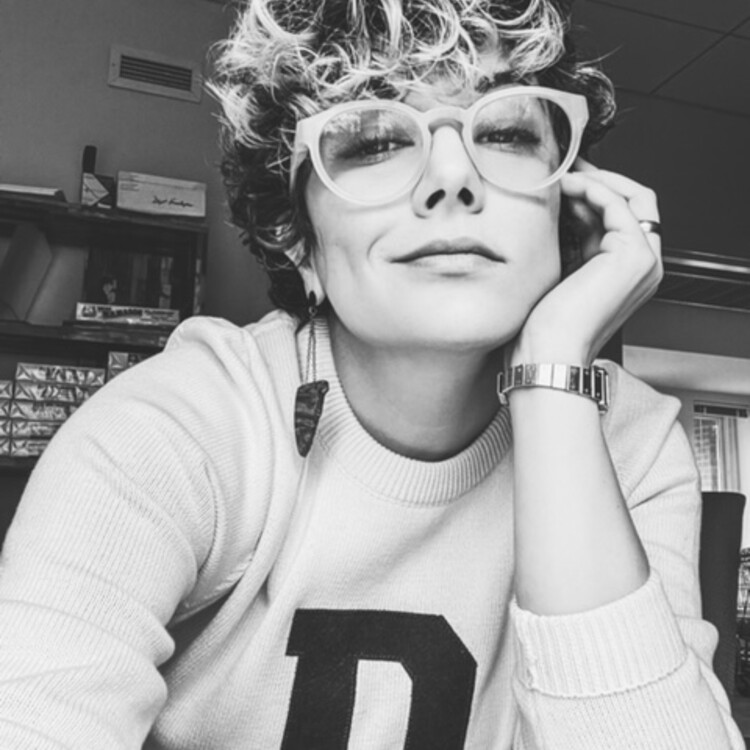
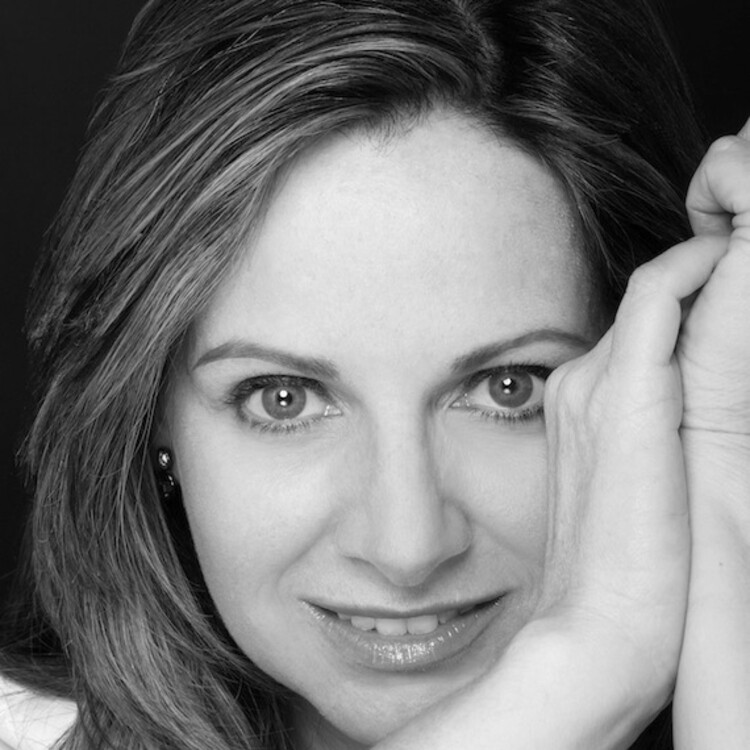
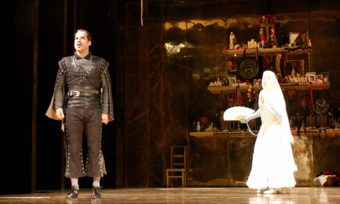

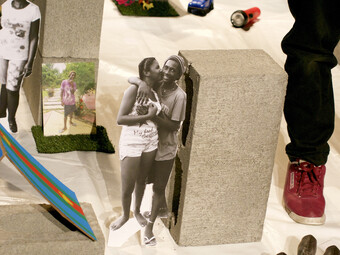

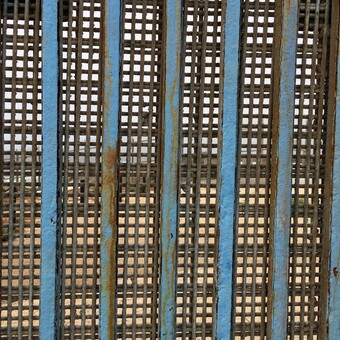

Comments
The article is just the start of the conversation—we want to know what you think about this subject, too! HowlRound is a space for knowledge-sharing, and we welcome spirited, thoughtful, and on-topic dialogue. Find our full comments policy here